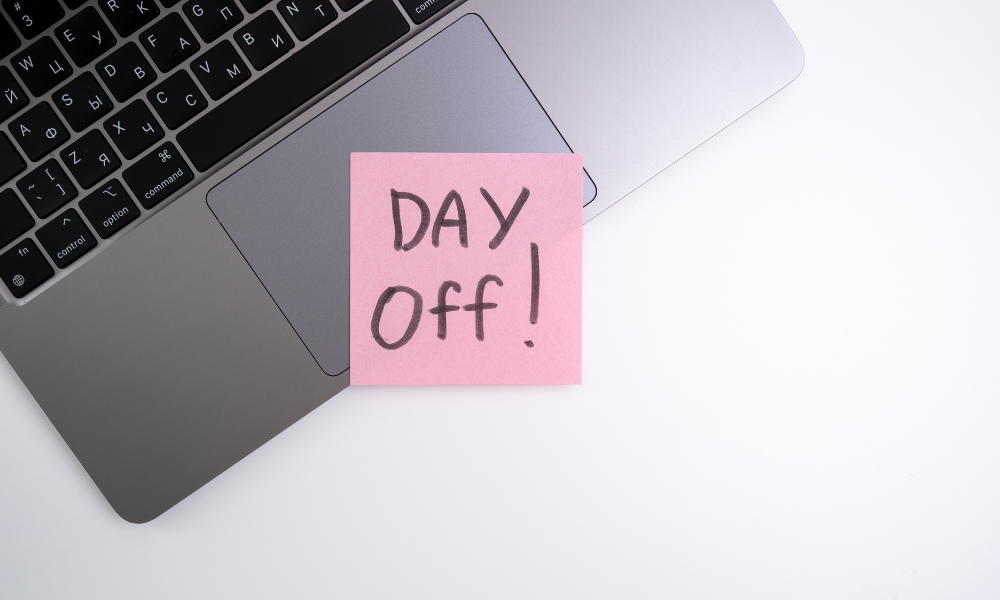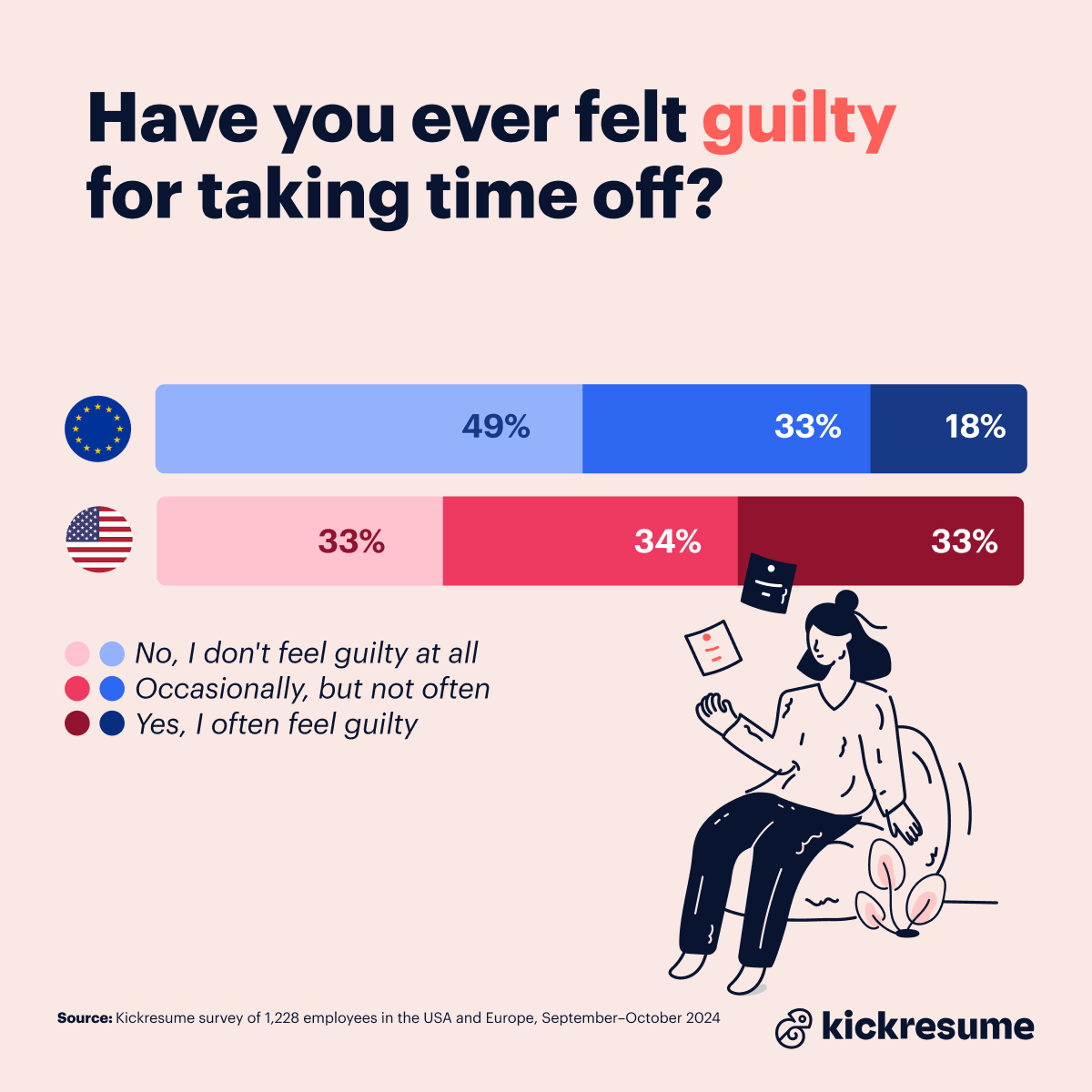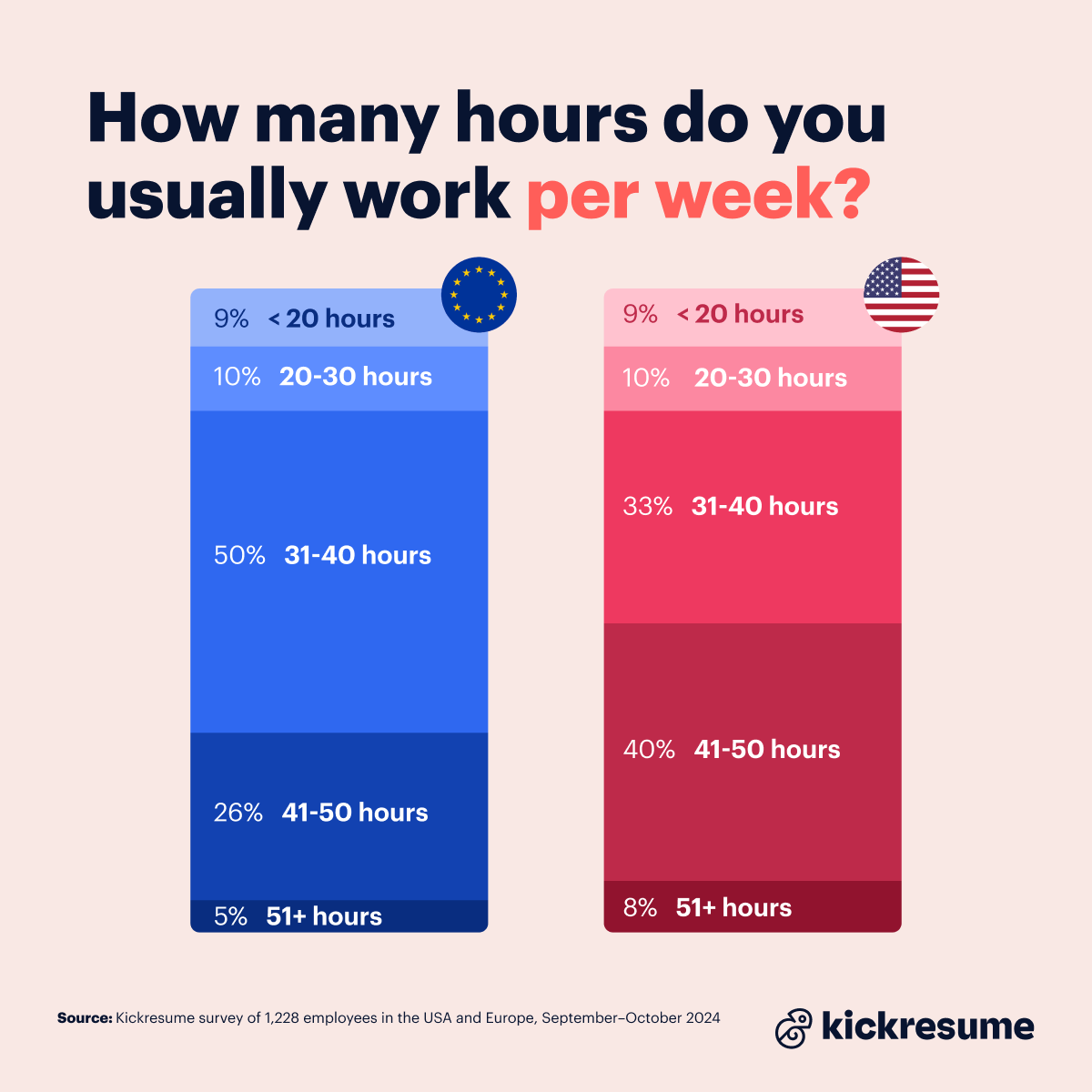
New report sheds light on long working hours, presenteeism in Europe, US

Employees in the United States feel more guilty than their European counterparts when it comes to taking time off, according to a new survey.
The poll, released by KickResume, surveyed 1,228 respondents in the US and Europe to analyse the work culture in both locations.
It found that just 33% of Americans don't feel guilty about taking time off, much less than the 49% of Europeans who said the same thing.
On the other hand, 33% of Americans said they often feel guilty about taking time off, which is much higher than the 18% of Europeans who expressed similar sentiments.

KickResume attributed the difference to the work cultures in both locations.
"In Europe, taking time off is generally seen as crucial for overall well-being. That could explain why almost half of Europeans don't feel guilty about it," KickResume said in a blog post.
"In the U.S., though, there's often more pressure to always be available, and many workers could worry that taking time off might make them seem less committed. This might explain why feelings of guilt are more common."
The report also noted that the "hustle culture" in the US, particularly for older workers, can further amplify the guilt for American employees.
The problem of taking time off isn't limited to vacations, according to the report, which discovered a similar case for sick days.
It found that nearly half of Europeans (49%) and Americans (46%) try to avoid taking sick days unless necessary.
In fact, 19% of Americans feel pressured to avoid taking sick days even when they're already unwell, while 10% of Europeans expressed the same feelings of pressure.
According to the report, only 27% of Americans take sick days without hesitation whenever they need to, but this figure is still lower than the 32% of Europeans who feel similarly.
"This might be due to the cultural expectation in the U.S. to always be productive," the report stated. "Europeans, although equally cautious about taking sick days, appear to experience less prejudice when it comes to taking a few days off for health reasons."
The differences over presenteeism between the two locations come as the report found that Americans tend to work longer hours than Europeans.
According to the report, only 31% of Europeans work more than 41 hours a week, much lower than the 48% of Americans who work similar hours.
In Europe, half of the respondents said they only work for 31 to 40 hours a week, while only a third of Americans said they also work these hours.

The report once again attributed the differences to the prevalent "hustle culture" in the US, which may be pressuring Americans to work longer hours.
Differences in legislation could also be another reason for the varying working hours, according to the report.
"Many European countries have policies that protect workers' time, such as limits on maximum working hours," it said. "Legal frameworks like these create a work environment where long hours are less expected and less normalised. In contrast, the American political system offers fewer workers' rights protection laws."
KickResume said that their findings underscore the importance of balancing work and personal life for overall happiness and productivity of employees.
"While there's no one-size-fits-all solution, policies that protect workers' time could make a big difference, particularly for those struggling with burnout and exhaustion."